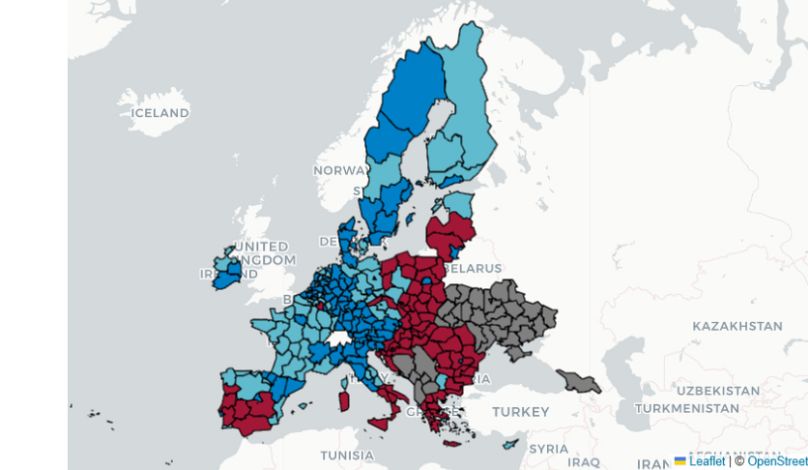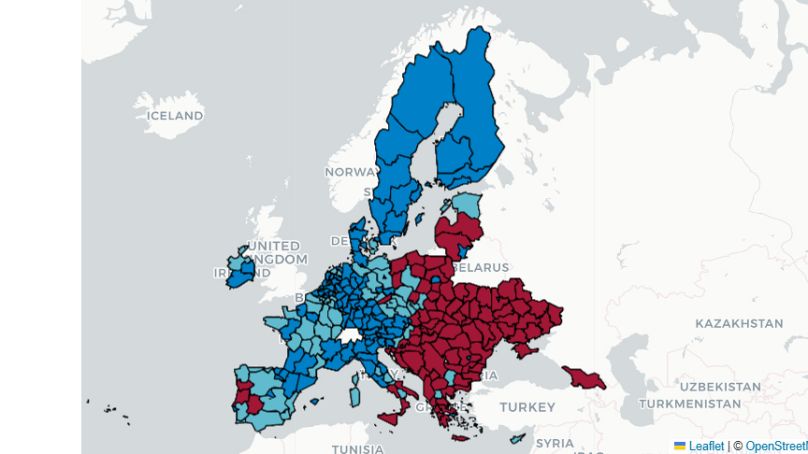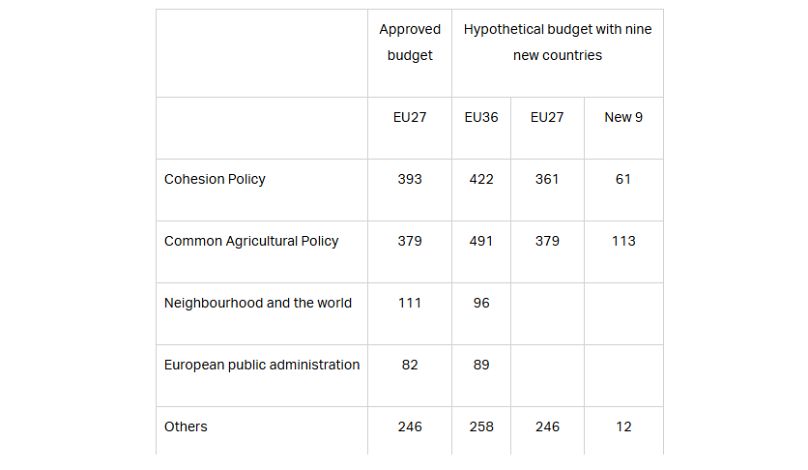A Bruegel study quantified the budget cuts some EU countries could face if the bloc admitted all nine candidate states, with an overall net cost of around €26 billion a year for current members.
A potential enlargement of the EU to nine new member states could bring significant changes to the bloc's budget.
A new study by Bruegel analysed what could happen to cohesion funds, which is the money that less-developed regions in the EU receive to catch up with the richer ones.
Currently, most of these regions are in southern Spain, Italy, Portugal, Greece, and much of eastern Europe.
However, the accession of new nations would change this geography.
Many of the current less developed regions would be reclassified as "transition regions", thus receiving less cohesion funding. That's because most of the new "less developed regions" - regional GDP per capita below 75% of the EU average - would be located in the new EU member states.
Italy and Spain would experience the largest funding cuts, each losing nearly €9 billion, followed by Portugal (-€4 billion), Hungary and Romania (-€2 billion each).
At the same time, "Poland, despite some shifts of regions into higher categories, would not face reduced cohesion funding, as its allocation was already constrained by an overall ceiling of 2.3% of GDP for most cohesion payments", the report says.
In overall terms, a potential enlargement to 36 states would raise the total EU budget from €1,211 billion to €1,356 billion.
The Bruegel analysis also considers changes to other sections of the budget, like Common Agricultural Policy, Neighbourhood and Public Administration.
The EU however is expected to revise its budget rules before a potential enlargement and to implement a transition period before new members can access funds.
What will be the benefits of enlargement for existing members?
If the number of EU members rises to 36, the net cost of enlargement to the previous 27 members would be around €26 billion per year.
On the other hand, a larger EU would boost existing members' economies, particularly in exports and foreign direct investments, Bruegel says.
"Foreign direct investment flows from western to central and eastern European countries that joined the EU between 2004 and 2013 have proven profitable, and this trend could be expected to continue with the nine new members," says the organisation.
Also, new member states could bring additional workforce to EU countries facing labour shortages.
"While net beneficiary countries would receive slightly less from the EU budget after enlargement, this reduction would be minor compared to the reduction in the current Multiannual Financial Framework (2021-2027) compared to 2014-2020", the period which followed the entry of 13 new countries into the EU.
The current candidate nations are Albania, Bosnia and Herzegovina, Georgia, Moldova, Montenegro, North Macedonia, Serbia, Turkey and Ukraine.














